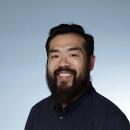Interfaith panel discusses religious extremism
From the beginning with original sin and on through the virgin birth of Jesus, Christians and Muslims share many beliefs, and it’s on this common ground these two Abrahamic religions should forge a stronger interfaith community, according to a panel of religious scholars speaking at La Cañada Presbyterian Church Sunday.
Around 250 people attended the forum on religious extremism, hosted by La Cañada Presbyterian and the Islamic Congregation of La Cañada Flintridge and moderated by KABC-TV meteorologist Dallas Raines. The discussion laid bare the mainstream Islamic community’s struggle to distinguish itself from violent extremists in the eyes of non-Muslims, especially in the immediate aftermath of terrorist attacks, such as recent incidents in San Bernardino and Paris.
“No one has more to lose at the hands of extremism than Muslims themselves,” said Edina Lekovic, public affairs consultant for the Muslim Public Affairs Council.
Prolonged conflicts and terrorist acts that are seemingly fueled by religious extremism are more likely motivated by identity politics, such as a desire to establish a national identity or to carve out a territory, according to Jihad Turk, dean of Bayan Claremont, an Islamic leadership graduate school at the Claremont School of Theology.
“There’s no justification in religion to do these immoral acts,” Turk said. “It’s really not what’s going on the ground there, and it’s a much more complicated conversation.”
Efforts to clarify that conversation are compounded by how Muslims are portrayed in the media, according to the two speakers, who were joined by J. Dudley Woodberry, a La Cañada Presbyterian member and a senior professor of Islamic studies at Fuller Theological Seminary, and his colleague Jay Muller, a part-time teacher at Fuller and La Cañada native.
“The majority of media interest in Muslims is as perpetrators or as victims,” said Lekovic. “Best case scenario is that when you’re going to see somebody like me [on television] is to explain what happened, and that’s part of why we’re stuck.”
Working in public affairs, Lekovic said it’s been a challenge to get proactive media coverage. Turk and Woodberry both cited the Marrakesh Declaration, when about 300 of the leading Muslim scholars from 120 countries gathered in Morocco in January and called for predominantly Muslim countries to protect the rights of religious minorities within their borders.
“How many of you heard of this groundbreaking [event]?” asked Turk, with only a few hands rising in response. “So 2% of this crowd … We have a narrative. It’s just not getting through.”
But Turk also said there all several questions Muslims are often asked that have already been answered, and that citizens should be obligated to seek them out.
Lekovic agreed.
“Forums like these are so critical because we can’t wait for the information to come to us. We have to find the information and we have to help others find this kind of information,” she said.
No one has more to lose at the hands of extremism than Muslims themselves.
— Edina Lekovic, public affairs consultant for the Muslim Public Affairs Council
The forum resonated with Julia Wells and her mother Janet Wells, both of Sierra Madre.
“This is a dialogue that needs to happen,” said Julia Wells, who attends both La Cañada Presbyterian and Fuller.
Janet Wells said she was especially struck by the similarities between the religions and how many conflicts are motivated by things other than religion.
“They made that point very clear — that so many things are geopolitical and too often we just put it on religion. That’s too simple,” she said, adding that she’d like to do some more reading herself, perhaps even picking up a copy of the Koran. “I would just really encourage everybody to become more educated and to have an open mind.”
Woodberry likened the process of the two faiths moving forward together to the Y-Bridge found in Zanesville, Ohio, where two bridges come together at a central point, allowing two different communities to cross a pair of rivers on one road.
“We worship the same being but we understand him both significantly similarly and significantly differently,” he said. “This is what we need to work on but there is certainly enough there that we agree on to carry on together.”
--
Brian Park, [email protected]
Twitter: @TheBrianPark
--
ALSO:
Op-Ed: Muslim Americans in their own voice
Council budgets $143K to community projects, $470K from late Ralph Lipscomb’s gift
